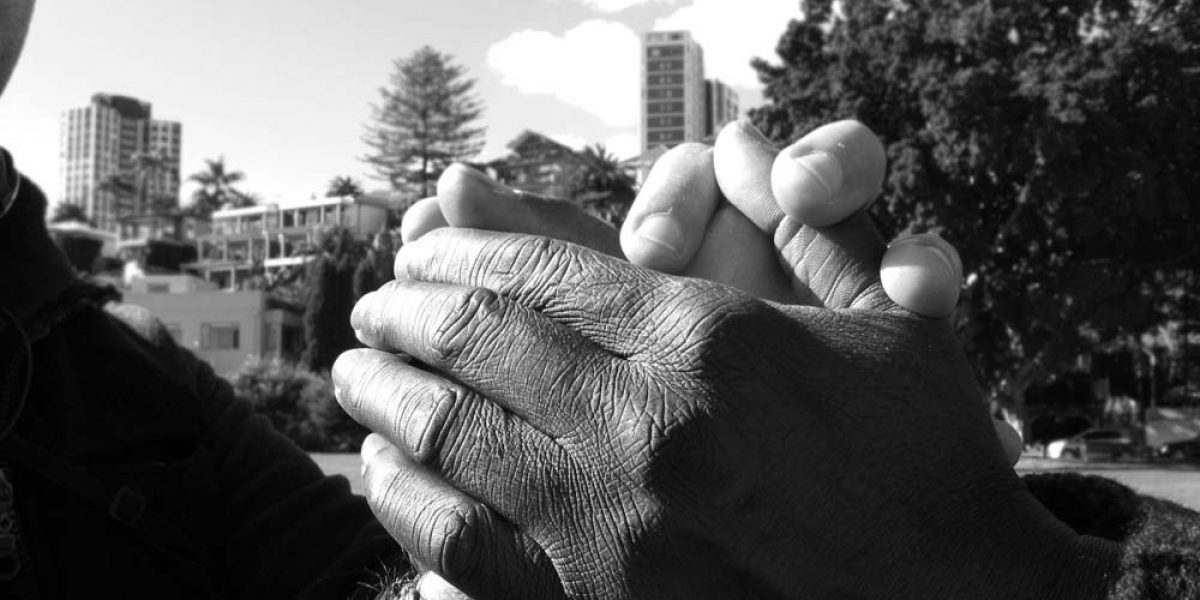
Asia Pacific, 9 December 2011 – As 2011 comes to a close, instead of offering specific project updates, below is an update on our work regionally. New projects beginning, others closing down and some are changing direction. JRS will look different in 2012.
Each of our seven active countries have seen growth in this past year, but so has the region in general. Regional advocacy for landmines and detention issues have been a focus of JRS this past year.
Advocates from JRS Cambodia and Indonesia attended the Convention on Cluster Munitions in Beirut, Lebanon to discuss the difficulties surrounding ratifying the treaty in the Asia Pacific and collaborate with other advocates on further action.
JRS staff met in Jogjakarta, Indonesia to discuss their work in places of detention. JRS works in seven immigration detention centres in the region. Staff from Australia, Indonesia and Thailand came together to share their experiences, and to explore ways to promote alternatives to detention. JRS staff explored ways to informally monitor conditions in detention, how to manage stress and devised action plans for promoting alternatives to detention throughout the region.
Thailand
In a change in JRS Thailand IDC policy, JRS facilitated the bail out of 16 detainees, by acting as guarantor for detainees who are able to pay their own bail and have applied to the IDC superintendent. Later, 39 more were released on bail with JRS support.
The Thailand task force on alternatives to detention, of which JRS is a member, finished its proposal which has been submitted to the Ministry of Foreign Affairs and the Immigration Commissioner in both English and Thai on 30 September. It proposes to release vulnerable asylum seekers and refugees into the community with reporting requirements and support from NGOs.
Cambodia
Phnom Penh will host the Eleventh Meeting of States Parties (11 MSP) this November 26th – December 2nd. This will mark the eleventh meeting on the convention on the prohibition of the use, stockpiling, production and transfer of anti-personnel mines and on their destruction.
The Cambodian government and non-governmental organisations focusing on landmines have already started hosting workshops, preparing exhibits and planning events. In Phnom Penh the International Committee of the Red Cross (ICRC) hosted a workshop looking at the regional impact of land mines.
The International Committee to Ban Landmines (ICBL) speakers gave facts about casualties in the region, urging governments to join the treaty and attend the 11MSP. In Siem Reap the Cambodian Mine Action Centre (CMAC) hosted a land release workshop in October. Representatives of demining agencies from around the world met to discuss survey and clearance techniques. Read more on this meeting and its outcomes at www.jrsap.org.
Philippines
The Philippines team has been working over the past year with internally displaced women with children who are extremely vulnerable. They are assisting women with skills training and supplies for vegetable gardens, and animal-raising so they can find work and sustain their families.
JRS is also advocating for women’s issues to be raised in public meetings and for women’s voices to be heard by decision makers. They have established leadership teams in the IDP centres. Women are often at the forefront of discussing food security, education and health issues of IDP children. Those who chose to remain in host communities and evacuation centres, many of them women and children, still find return unsafe.
Indonesia
After three years, JRS has closed its project in Aceh. The project, initially working with those affected by the tsunami and violent conflict worked in education, disaster preparation and conflict management. After their Strategic Planning on August 6-9 attended by the regional office, JRS IDN has decided to move on from Aceh and continue their engagement with IDC in Medan and asylum seekers and refugees in Cisaura. The team is also revisiting and restarting their involvement with displaced people in Ambon.
With their work accompanying asylum seekers and refugees in Medan’s Immigration Detention Centre, the team is exploring working in a second detention centre in Pasuruan, Surabaya and the refugees living in a community accommodation in Sewon, Bantul, Yogyakarta.
Timor Leste
JRS works in 22 sub-villages in four villages. About 4,200 returned internally-displaced people have returned to these villages that registered the highest incidence of violence and conflict. The focus of our efforts is on strengthening sub-village governance and empowering youth and women in the community.
By June, 7 45 women participated in skills training. In Hera village, two groups of households have each established vegetable farms with assistance from JRS. Other activities include training for local officials and communities on peace, human rights, and reconciliation, gender-based violence, inter-village sports and music for peace involving young people. JRS have trained village officials in proposal writing. In June, one village council proposal for youth sports for peace was approved by the government; three other proposals are awaiting results.
Australia
As we reach the end of 2011, JRS Australia is now very involved in looking to provide services to single adult men who will be in community detention until they are found to be suitable for a Bridging Visa. These men are deemed to be very vulnerable and many have a background of torture and trauma. We expect to have the first men out under this system by Christmas, a result of the Government announcement that Australia will now undertake onshore processing only.

